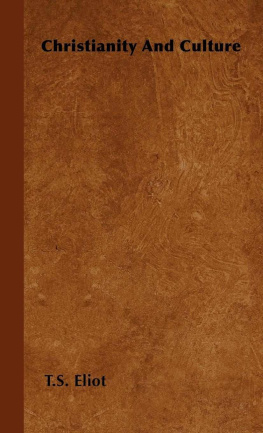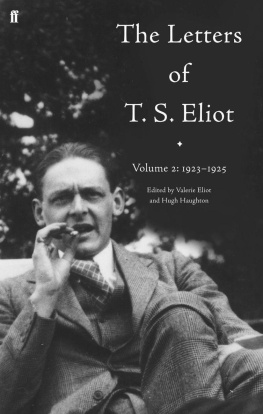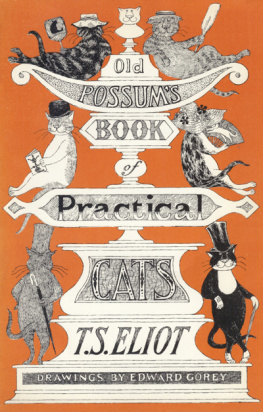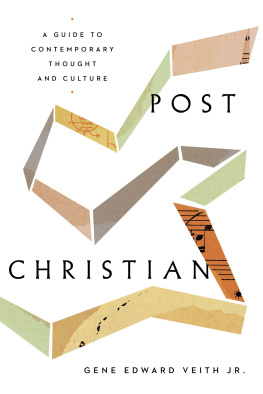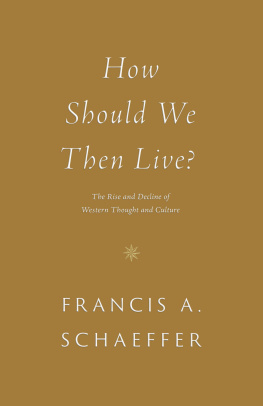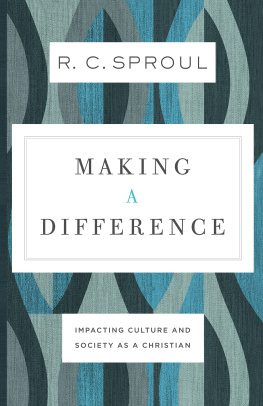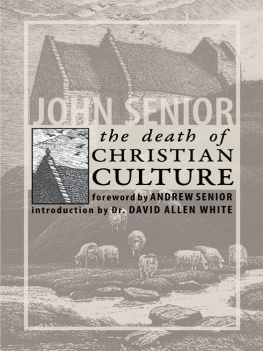Christianity and Culture
The Idea of a Christian Society AND
Notes towards the Definition of Culture
BY T. S. Eliot

Printed in the United States of America
Contents

The Idea of
a Christian Society
has appeared too recently for me to have made use of it). And I am deeply indebted to the works of Jacques Maritain, especially his Humanisme intgral.
I trust that the reader will understand from the beginning that this book does not make any plea for a religious revival in a sense with which we are already familiar. That is a task for which I am incompetent, and the term seems to me to imply a possible separation of religious feeling from religious thinking which I do not acceptor which I do not find acceptable for our present difficulties. An anonymous writer has recently observed in The New English Weekly (July 13, 1939) that
men have lived by spiritual institutions (of some kind) in every society, and also by political institutions and, indubitably, by economic activities. Admittedly, they have, at different periods, tended to put their trust mainly in one of the three as the real cement of society, but at no time have they wholly excluded the others, because it is impossible to do so.
This is an important, and in its context valuable, distinction; but it should be clear that what I am concerned with here is not spiritual institutions in their separated aspect, but the organisation of values, and a direction of religious thought which must inevitably proceed to a criticism of political and economic systems.
CHAPTER I

THE fact that a problem will certainly take a long time to solve, and that it will demand the attention of many minds for several generations, is no justification for postponing the study. And, in times of emergency, it may prove in the long run that the problems we have postponed or ignored, rather than those we have failed to attack successfully, will return to plague us. Our difficulties of the moment must always be dealt with somehow: but our permanent difficulties are difficulties of every moment. The subject with which I am concerned in the following pages is one to which I am convinced we ought to turn our attention now, if we hope ever to be relieved of the immediate perplexities that fill our minds. It is urgent because it is fundamental; and its urgency is the reason for a person like myself attempting to address, on a subject beyond his usual scope, that public which is likely to read what he writes on other subjects. This is a subject which I could, no doubt, handle much better were I a profound scholar in any of several fields. But I am not writing for scholars, but for people like myself; some defects may be compensated by some advantages; and what one must be judged by, scholar or no, is not particularised knowledge but ones total harvest of thinking, feeling, living and observing human beings.
While the practice of poetry need not in itself confer wisdom or accumulate knowledge, it ought at least to train the mind in one habit of universal value: that of analysing the meanings of words: of those that one employs oneself, as well as the words of others. In using the term Idea of a Christian Society I do not mean primarily a concept derived from the study of any societies which we may choose to call Christian; I mean something that can only be found in an understanding of the end to which a Christian Society, to deserve the name, must be directed. I do not limit the application of the term to a perfected Christian Society on earth; and I do not comprehend in it societies merely because some profession of Christian faith, or some vestige of Christian practice, is retained. My concern with contemporary society, accordingly, will not be primarily with specific defects, abuses or injustices but with the question, whatif anyis the idea of the society in which we live? to what end is it arranged?
The Idea of a Christian Society is one which we can accept or reject; but if we are to accept it, we must treat Christianity with a great deal more intellectual respect than is our wont; we must treat it as being for the individual a matter primarily of thought and not of feeling. The consequences of such an attitude are too serious to be acceptable to everybody: for when the Christian faith is not only felt, but thought, it has practical results which may be inconvenient. For to see the Christian faith in this wayand to see it in this way is not necessarily to accept it, but only to understand the real issuesis to see that the difference between the Idea of a Neutral Society (which is that of the society in which we live at present) and the Idea of a Pagan Society (such as the upholders of democracy abominate) is, in the long run, of minor importance. I am not at this moment concerned with the means for bringing a Christian Society into existence; I am not even primarily concerned with making it appear desirable; but I am very much concerned with making clear its difference from the kind of society in which we are now living. Now, to understand the society in which he lives, must be to the interest of every conscious thinking person. The current terms in which we describe our society, the contrasts with other societies by which weof the Western Democracieseulogise it, only operate to deceive and stupefy us. To speak of ourselves as a Christian Society, in contrast to that of Germany or Russia, is an abuse of terms. We mean only that we have a society in which no one is penalised for the formal profession of Christianity; but we conceal from ourselves the unpleasant knowledge of the real values by which we live. We conceal from ourselves, moreover, the similarity of our society to those which we execrate: for we should have to admit, if we recognised the similarity, that the foreigners do better. I suspect that in our loathing of totalitarianism, there is infused a good deal of admiration for its efficiency.
The political philosopher of the present time, even when he is a Christian himself, is not usually concerned with the possible structure of a Christian state. He is occupied with the possibility of a just State in general, and when he is not an adherent of one or another secular system, is inclined to accept our present system as one to be improved, but not fundamentally altered. Theological writers have more to say that is relevant to my subject. I am not alluding to those writers who endeavour to infuse a vague, and sometimes debased, Christian spirit into the ordinary conduct of affairs; or to those who endeavour, at moments of emergency, to apply Christian principles to particular political situations. Relevant to my subject are the writings of the Christian sociologiststhose writers who criticise our economic system in the light of Christian ethics. Their work consists in proclaiming in general, and demonstrating in particular, the incompatibility of Christian principle and a great deal of our social practice. They appeal to the spirit of justice and humanity with which most of us profess to be inspired; they appeal also to the practical reason, by demonstrating that much in our system is not only iniquitous, but in the long run unworkable and conducive to disaster. Many of the changes which such writers advocate, while deducible from Christian principles, can recommend themselves to any intelligent and disinterested person, and do not require a Christian society to carry them into effect, or Christian belief to render them acceptable: though they are changes which would make it more possible for the individual Christian to live out his Christianity. I am here concerned only secondarily with the changes in economic organisation, and only secondarily with the life of the devout Christian: my primary interest is a change in our social attitude, such a change only as could bring about anything worthy to be called a Christian Society. That such a change would compel changes in our organisation of industry and commerce and financial credit, that it would facilitate, where it now impedes, the life of devotion for those who are capable of it, I feel certain. But my point of departure is different from that of the sociologists and economists; though I depend upon them for enlightenment, and a test of my Christian Society would be that it should bring about such reforms as they propose; and though the kind of change of spirit which can testify for itself by nothing better than a new revivalistic vocabulary, is a danger against which we must be always on guard.

